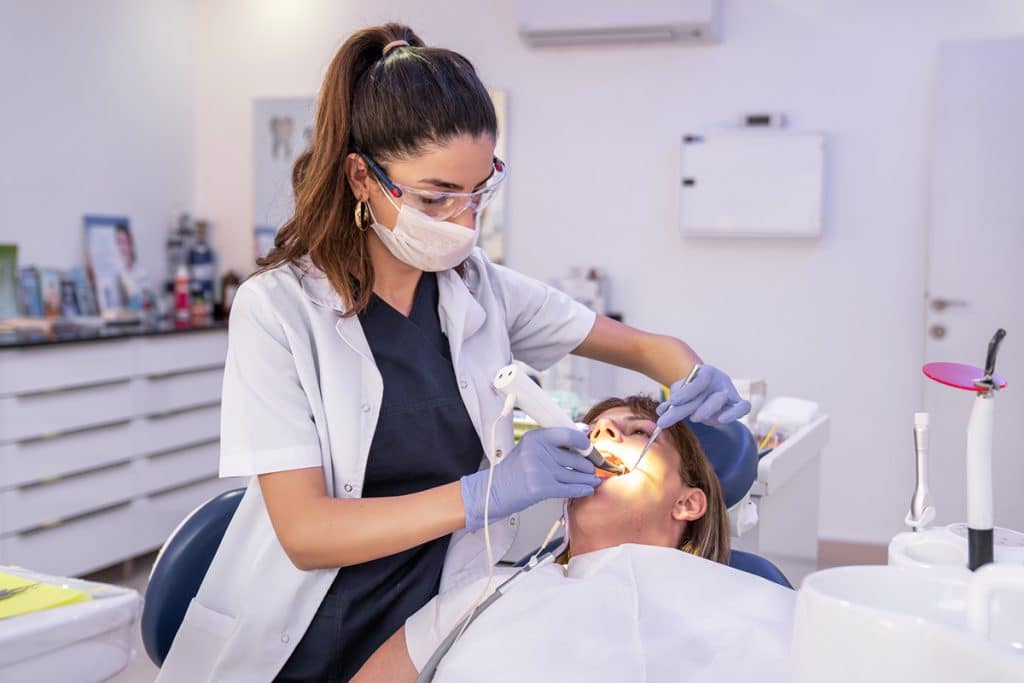Can I Get a Root Canal While Pregnant?

Celebration tinged with anxiety aptly describes most expecting mothers’ lives today where they constantly worry about their own health as well as that of their unborn child's well-being.
Mothers-to-be ponder over questions regarding how various medical procedures like root canal treatment would affect them or not during pregnancy phase; bringing up several concerns about safety aspects before getting a procedure like this done.
Unarguably, root canal procedure has now become widespread across dentistry clinics all around us; however when dealing with pregnant women, relevant questions defy precise answers regarding its efficacy.
This informative piece talks about potential risks, common concerns and standard precautions needed to be taken in order to ensure maximum safety for both mother and baby during the execution of root canal procedures.
Understanding root canals and their purpose
Understanding what root canal procedures during pregnancy entail as well as their necessity is fundamental before diving into their safety during pregnancy evaluation.
Root canals are dental procedures aimed at eliminating infected or damaged pulp from within a tooth that often results from decay or trauma, among other reasons, leading to inflammation of nerves and blood vessels contained in it. With proper removal of affected pulp tissues by dentists through careful cleaning and shaping of root channels, this helps save teeth while alleviating pain hence restoring function often followed by crown placement over filled up spaces using biocompatible materials.
While considered safe with local anesthesia, providing comfort through an emergency appointment for this procedure, relieving dental pain, and maintaining functional teeth status always raise flags for concern.
Common concerns about root canals during pregnancy
Expectant mothers weighing whether to undergo root canal work during pregnancy commonly raise concerns about the potential risks of anesthesia and medication usage associated with this kind of procedure.
These worries stem from considerations over how their actions might impact the development of their unborn child. Yet it should be reassuring to know that local anesthesia typically poses low danger levels since little enters into circulation through its localized application system.
Women may also fret about exposure to radiation from dental X-rays taken during treatment; these scans are normally essential for diagnosing oral issues correctly and planning precise interventions but prudence would dictate minimizing exposure wherever possible, particularly during the initial trimester (a period when fetal organs rapidly take shape). And if there is no way to avoid ordering an X-ray, certain precautions are recommended such as using protective attire or equipment like custom-made aprons adapted specifically for such environments.
Finally, some women voice anxieties over undergoing any sort of dental procedures while expecting. The extra tension associated with visiting the dentist for treatment can add stress atop the physical ordeal of bringing new life into the world – but equally important is bearing in mind that untreated oral problems can also lead to discomfort and even worse anxiety levels. Tackling these difficulties head-on through interventions such as root canal work could potentially reduce overall stress loads and improve well-being prospects across the board.
Benefits of getting a root canal during pregnancy
Most elective dental treatment should be avoided during pregnancy. However, there are several benefits associated with root canal therapy during pregnancy that you cannot afford to ignore either.
The procedure can quickly alleviate intense tooth pains, thus enabling you to focus better on your emotional and physical wellness when needed most.
Additionally, preserving natural teeth with root canal procedures as opposed to getting them extracted comes with its own set of benefits too.Tooth extraction during pregnancy could lead to nutritional deficiencies due to problems with being able to eat or chew normally. Extraction can also impact surrounding teeth, adversely posing a risk of future dental problems that may arise for pregnant women.
By opting for root canal procedures, it ensures oral function is maintained. As well, common dental health issues can be eradicated on top of maintaining one's appearance which has major significance towards sustaining self-confidence–especially in periods like this where tremendous changes occur.
Precautions and Considerations for pregnant women seeking root canals
If undergoing root-canal therapy while pregnant seems necessary, proper communication with both your dentist and healthcare provider regarding any medical concerns is paramount. Some general precautionary advice applies specifically to expectant mothers looking into this procedure:
It's advisable that non-urgent dental treatments are delayed until past their first trimester when internal organs have either fully formed or stabilized.
Procedures involving local anesthesia are typically considered safe whilst pregnant but dosage amounts should be adjusted accordingly as needed. On the other hand, nitrous oxide or "laughing gas" administration is not recommended when pregnant.
To limit exposure to radiation, lead aprons for abdominal and thyroid protection should be used.
Medications that could assist with potential infections such as antibiotics might be necessary before or after undergoing root-canal therapy while pregnant; dental professionals should be notified of any impairments due to pregnancy beforehand carefully.
Root Canal Therapy in Temple
While research on the safety of root canals for pregnant women is limited, available evidence suggests that they can be performed safely, provided appropriate precautions are taken.
Maintaining good dental health during pregnancy is essential, and root canals can be an effective treatment option to alleviate severe tooth pain and save teeth from extraction. However, it is important to communicate openly with your dentist and healthcare provider, who can provide personalized advice based on your specific situation. To learn more, contact us at 254-778-4400.

